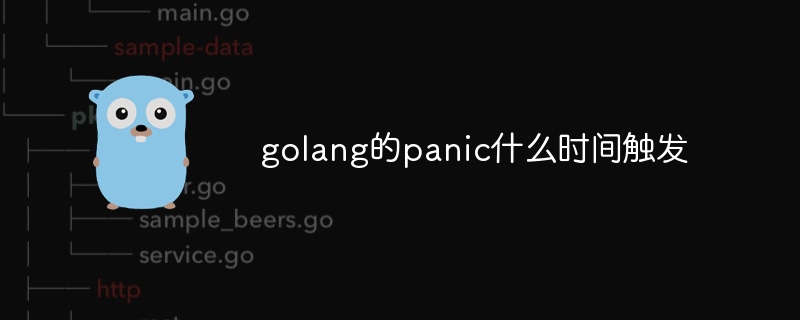Home >Backend Development >Golang >When does golang's panic trigger?
When does golang's panic trigger?
- 下次还敢Original
- 2024-04-21 01:09:14455browse
The Go program will trigger panic to handle unrecoverable errors, such as: built-in function call errors (such as make, new, append) user-defined panic call stack overflow memory allocator exhausted memory coroutine fatal exit shutdown None Waiting for the goroutine channel

Panic triggering timing in Go
When the Go program encounters an unrecoverable error , it will trigger panic. Normally, panic will be triggered in the following two situations:
1. Error when calling a built-in function
When a built-in function (such as make, new, append) encounter errors during execution, they will trigger panic. For example:
<code class="go">// 尝试创建超过最大长度的切片导致 panic mySlice := make([]int, 1e100)</code>
2. User-defined panic call
Users can explicitly trigger panic by calling the panic function. Typically, this is to indicate an error under which program execution cannot continue. For example:
<code class="go">// 缺少必要参数导致 panic
func myFunc(a, b int) {
if a == 0 {
panic("参数 a 不能为空")
}
}</code>
Other situations that trigger panic
In addition to the above common situations, there are some other situations that may trigger panic:
- When the stack overflows (such as infinite recursion)
- When the allocator runs out of memory
- When a coroutine exits due to a fatal error
- When a channel is closed, And there are no goroutines waiting for it
Handling Panic
When a panic occurs, the Go program stops execution and prints a stack trace. Panics can be handled by implementing the recover function. This function can recover from a panic and continue execution, although recovery may not be possible in some cases.
The above is the detailed content of When does golang's panic trigger?. For more information, please follow other related articles on the PHP Chinese website!

